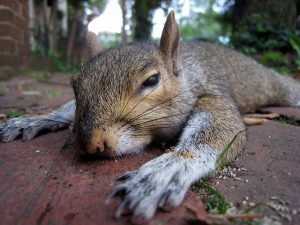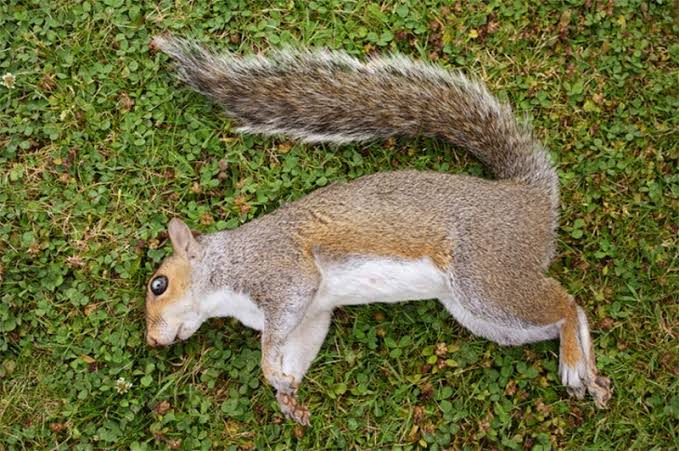Can Squirrels Really Play Dead?
Introduction
Have you ever experienced a squirrel dropped motionless to the ground all of a sudden as if it were playing dead? It’s a sight that can leave anyone marveled. In the real sense, can squirrels play dead, or is it just in our heads or imaginations? Outdoorsmoment will in this article, explore this surprising behavior exhibited by these quick-thinking creatures and the reasons behind this smart act.

The Survival tactics of Squirrels

Squirrels, known for their agile features, have some intriguing survival techniques up their sleeves. One such behavior is their remarkable ability to play dead when faced with a threat. Although it may seem like a peculiar act, it serves as a defense mechanism against potential killers. By faking to be lifeless, squirrels hope to prove to their assailants that they are no longer a viable meal.
The Deception Format

When squirrels play dead, they don’t simply freeze in one position. Instead, they employ a carefully planned performance that includes collapsing to the ground, lying motionless, and even jerking sporadically. Studies has shown that this feigned death act can last anywhere from a few minutes to several hours, depending on the perceived danger.
According a Wildlife Expert, “Playing dead is an Oscar-worthy performance for squirrels, and they take this act seriously.”
Confusing the Predator
Squirrels have the ability to assess threats and thus react accordingly. When they encounter a predator, they swiftly evaluate the situation and decide whether to fight, flight, or play dead. In the presence of larger predators, such as domestic cats or birds of prey, faking death can be the most effective strategy of survival. By seeming lifeless, squirrels can delude predators into thinking they are no longer a potential meal, causing them to lose interest in them and move on.
The study behind Playing Dead
Having understood why squirrels engage in this fascinating behavior, let’s dig deeper into the study behind it. When squirrels are faced with a potentially life-threatening situation, their bodies undergo a series of physiological changes that facilitate their act of playing dead.
Freezing Response

When faced with a threat, squirrels experience a freeze response, also known as tonic immobility. This response is triggered by the release of stress hormones, such as cortisol, which cause the squirrel’s body to freeze. During this time, the squirrel’s heart rate slows, its breathing becomes shallow, and it lowers its body temperature, giving the impression of death.
Behaviors Of Reflex
Faking death is not a passive act for squirrels. They often exhibit reflexive behaviors, such as convulsing or jerking, to further sell their performance. Theses are movements of instincts aimed at displaying an illusion of a dying or injured animal.
Dangers Of Playing Dead
While playing dead can be a useful survival technique for squirrels, it does come with some limitations and risks.
Though adept at playing dead, squirrels are not infallible. Some predators, particularly those with an acute sense of smell, may be able to detect the deception. Furthermore, some predators, like snakes or certain canines, are not discouraged by a motionless squirrel and may still attempt an attack.
Vulnerability to Other Predators
While playing dead may deter certain predators, it can draw attention from opportunistic predators that target carrion. For instance, foxes or scavenging birds may notice a seemingly lifeless squirrel and utilize the opportunity for an easy meal. These highlights are the risk squirrels take when performing this survival mechanism.
Conclusion
Squirrels truly possess remarkable survival strategies, and their ability to play dead is a testament to their resourcefulness. When faced with danger, these agile and fascinating creatures resort to this remarkable behavior to outsmart potential predators. By convincingly playing dead, they often manage to escape unharmed. However, this survival mechanism is not foolproof, and squirrels must be cautious of the risks it entails.
So note that any time you encounter a squirrel suddenly motionless on the ground, it is simply displaying a survival mechanism.



